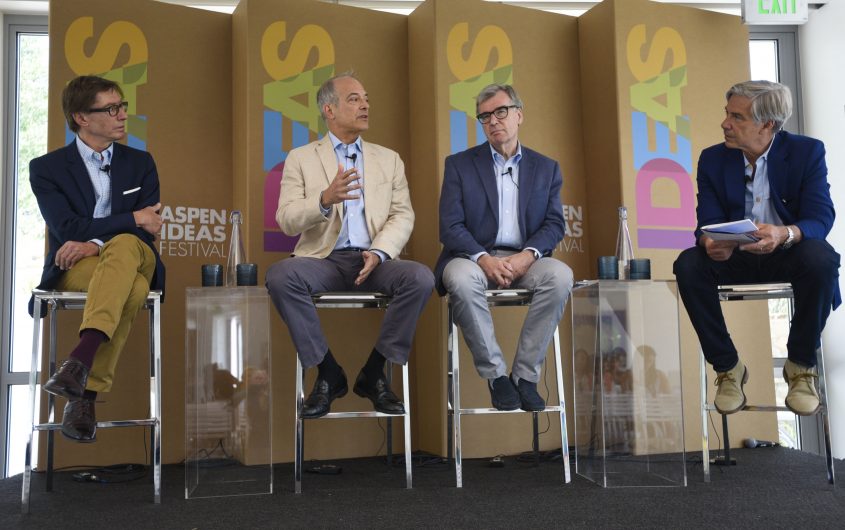AGI News
What Germany Can Teach Us About Manufacturing, Technology, and Trade

Riccardo Savi via Aspen Institute

Peter S. Rashish
Vice President; Director, Geoeconomics Program
Peter S. Rashish, who counts over 30 years of experience counseling corporations, think tanks, foundations, and international organizations on transatlantic trade and economic strategy, is Vice President and Director of the Geoeconomics Program at AICGS. He also writes The Wider Atlantic blog.
Mr. Rashish has served as Vice President for Europe and Eurasia at the U.S. Chamber of Commerce, where he spearheaded the Chamber’s advocacy ahead of the launch of the Transatlantic Trade and Investment Partnership. Previously, Mr. Rashish was a Senior Advisor for Europe at McLarty Associates, Executive Vice President of the European Institute, and a staff member and consultant at the International Energy Agency, the World Bank, UN Trade and Development, the Atlantic Council, the Bertelsmann Foundation, and the German Marshall Fund.
Mr. Rashish has testified before the House Financial Services Subcommittee on International Monetary Policy and Trade and the House Foreign Affairs Subcommittee on Europe and Eurasia and has advised three U.S. presidential campaigns. He has been a featured speaker at the Munich Security Conference, the Aspen Ideas Festival, and the European Forum Alpbach and is a member of the Board of Directors of the Jean Monnet Institute in Paris and a Senior Advisor to the European Policy Centre in Brussels. His commentaries have been published in The New York Times, the Financial Times, The Wall Street Journal, Foreign Policy, and The National Interest, and he has appeared on PBS, CNBC, CNN, NPR, and the BBC.
He earned a BA from Harvard College and an MPhil in international relations from Oxford University. He speaks French, German, Italian, and Spanish.
AGI Geoeconomics Program Director Peter Rashish spoke on a panel on “What Germany Can Teach Us About Manufacturing, Technology, and Trade” at the Aspen Ideas Festival on June 26, 2018.
About the panel

The United States and Germany have much in common: advanced industrial economies, high living standards, first-class universities, and leading companies. They also share the same pressures from globalization — trade competition, technological change, movement of people and ideas — around which to innovate and adapt. But the data makes it clear that Germany has better maintained its share of manufacturing in the global economy. Should Americans (and others) try to emulate the Germans’ strategy, and if so, what are the best practices most likely to translate into success?








